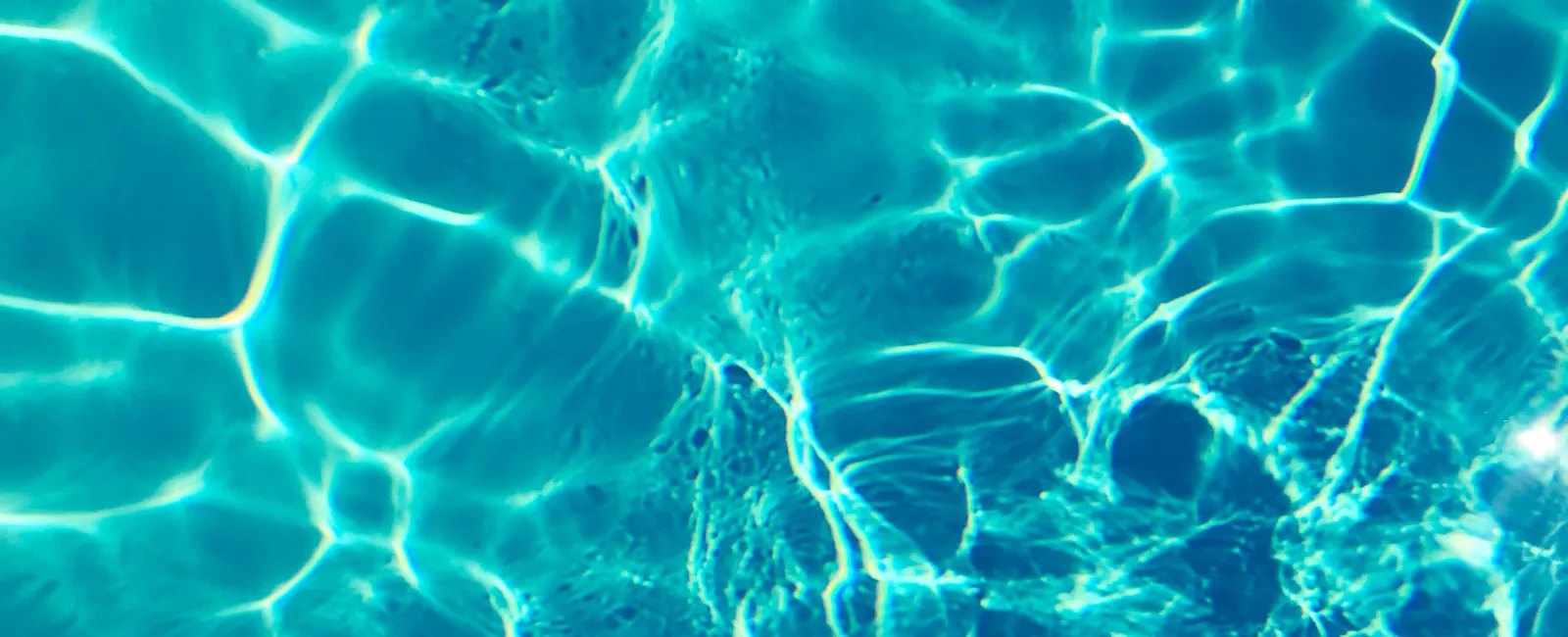PPH would be happy to install and/or maintain your salt water pool, but if you are contemplating installing a salt cell in your pool, here is some information that can help you make a decision that's best for you.
Let's start by clearing up some misconceptions:
A salt water pool is not like swimming in the ocean. The salt concentration in a salt water pool (about 3,000 ppm) is about one tenth that of the ocean (about 34,000 ppm).
A salt water pool is still a chlorinated pool. In a salt water pool, a chlorine generator converts salt into chlorine and hydrogen by a process called electrolysis. Because free chlorine is constantly being generated, the levels tend to remain more constant than they would with weekly additions of chlorine in a traditional pool. Maintaining a consistent chemical balance in your pool is better for you and better for your pool.
With that said, it is still important to regularly monitor salt levels, chlorine levels, pH, alkalinity, stabilizer and calcium, just as you do with a traditional swimming pool. Adjustments will need to be made based on weather and the amount of use your pool gets. It will also be necessary to check and clean the chlorine generator to prevent buildup and to monitor for signs of corrosion. A salt water pool requires as much maintenance as a traditional pool. This is not a set-it-and-forget-it system.
Low chlorine levels in salt water pools can result from large amounts of rain (dilution), backwashing, insufficient salt, setting your chlorine generator too low, higher than normal chlorine demand (think pool party), low-stabilizer, sun-exposure, insufficient pump speed or mechanical issues.
Ok, now that we've got that out of the way, here are the pros and cons of a salt-water pool…
Pros:
Because the chlorine generator in a salt water pool is continuously making chlorine, you avoid the peaks and valleys that result from periodic addition of large amounts of chlorine. As a result, salt water pools generally require lower chlorine concentrations than traditional pools. This can be gentler on the eyes, skin and swim suits. A salt water pool may be a good choice for people with asthma or allergies and they are a good choice for indoor pools.
Traditional swimming pools contain both free chlorine and chloramines. Chloramines are formed when free chlorine binds to biological material (perspiration, saliva, mucus, urine, etc). They are also responsible for the "chlorine smell" and for eye irritation. A pool high in chloramines needs to be "shocked" by adding 5-10x the amount of normal chlorine. By contrast, the chlorine generator in a salt water pool also burns chloramines so shocking will not normally be necessary, meaning that your chlorine concentrations will remain within an ideal range at all times and you can safely swim in your pool 24/7.
Water in a salt water pool feels softer, which some people find desirable.
Cons:
Chlorine generators and other components to salt water pools are more expensive than those of a traditional pool, so your up-front costs will be higher ($1500-$2500 plus installation).
Proponents of salt water pools will tell you that your pool chemical costs will go down, and that's probably true, but given that pool chemicals are a relatively small proportion of the total costs of pool-ownership, you will not likely find reduced cost in the "pros" column. Combine that with the fact that salt cells will need to be replaced about every 3-5 years at a cost of $300-$700, cost savings is not a valid argument in favor of a salt water pool.
Salt cells need to be cleaned periodically, which can be a messy job.
Salt water pools are more complex than traditional swimming pools and you'll find that even minor problems will likely require the services of an experienced technician.
Salt is corrosive. You'll need avoid use of certain types of heaters, fixtures, liners and even some masonry.
pH tends to run high and will need to be checked and managed regularly. Failure to do so can cause calcium buildup on the surface of the pool and in the plumbing. You will need to store acid to balance the pH (unless you have a pool service company taking care of it).
Draining your salt water pool is not necessarily a simple task.
Chlorine dissipates. That's why you have to keep adding it. As such, after allowing several days for dissipation and confirming low levels of chlorine, pool water from a traditional swimming pool can be drained on to your lawn or garden.
Conversely, you need to be more careful when draining water from a salt pool. Even though the salt concentration in your pool is relatively low (about 3500 ppm), that equates to 25 lbs of salt for every 1,000 gallons of water. Water splashed from your pool won't likely harm the grass, but 25 lbs of salt or more most certainly will have consequences to yourself, your neighbors and to the local environment.
Your best choice for draining large amounts of water from your salt pool, is into the sanitary sewer system where it can be treated.
I hope this info is helpful. If you're still on the fence or have more questions, feel free to give us a call. We're always happy to answer your questions.


